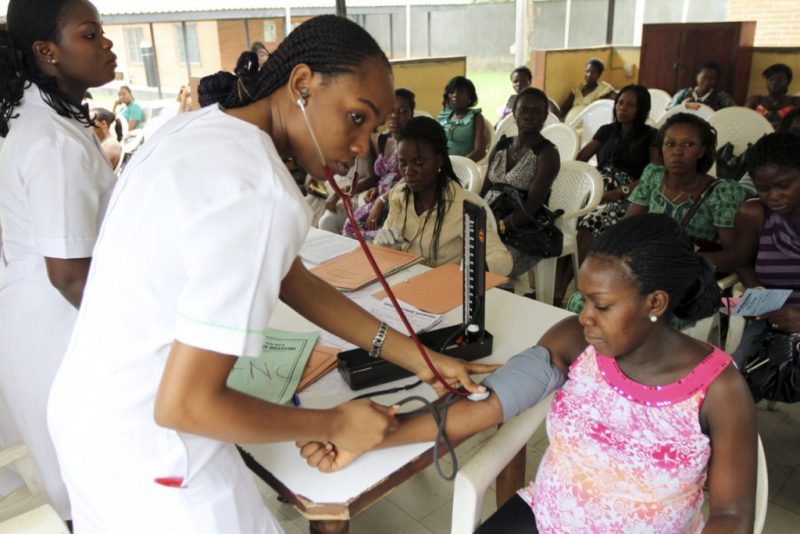Do you know what fear really feels like? Let me let you in.
February 28th, 2020
It’s 12:42am, as I walk back to the labour ward, having transferred a woman and her new baby to the post-natal ward, the familiar ding sound of my WhatsApp notification jolts me and I flip my phone out of my scrub’s pocket. The message reads thus:
“The Federal Ministry of Health has confirmed a coronavirus disease (COVID-19) case in Lagos State, Nigeria. The case, which was confirmed on the 27th of February 2020, is the first case to be reported in Nigeria since the beginning of the outbreak in China in January 2020.
My hands immediately feel numb. I’m now in the Labour ward and I can hear the chatter of the nurses and doctors.
“How did this virus get to this country?”
“Ah! We are not prepared for this”
“What?! When we don’t even have enough PPEs on a normal day, Hei God”
Fear hovered around the ward as we made the many speculations. “What a time to be a health worker”, I mutter, as I head for my post. It would have been a completely different narrative if the COVID-19 virus was a familiar one.
—
Every day, a health worker comes in contact with people from different walks of life with many unknown contagious diseases. When I say contact, I don’t mean the casual contacts you have with individuals on the road. I mean, the invasive and non-invasive check ups et procedures that must of necessity be done when a patient is being attended to. That risk of a needle prick, the unexpected splash of blood or body fluid, the risk of a slipped disk while lifting a patient and more recently, the risk of exposures to the COVID-19 virus. Before you utter that cliché “is this not the life you signed up for?” statement, let me take you through the hall of shortage of Personal Protective Equipment (PPE).
—
The World Health Organisation (W.H.O) states that Personal Protective Equipment against infectious organisms consists of standard precautions: gloves, mask, gown, and if it is a blood or airborne infections, will include: Face protection, goggles and mask or face shield, gloves, gown or coverall, head cover, rubber boots. Now, you have probably seen pictures of health workers who work at the isolation centres fully donned with the appropriate Personal Protective Equipment. Commendable. But the normal wards are still open with health workers who are attending to supposedly non-COVID patients, and utilising just basic PPEs (which is usually not even adequate). What happens to these middle-liners when there is an unknown exposure to a COVID-19 patient, while donning minimal PPE?
This is what fear is.
—
Healthcare in Nigeria has been consistently plagued by political instability, limited institutional capacity and an unstable economy. These problems that have plagued the system for years have remained consistent despite changing administrations. On the part of the health care workers, this has resulted in ‘brain drain’ of health professionals to other countries, especially in Europe and America, with surveys showing looming brain drain in the Nigeria’s health sector in the rising trend of emigration of healthcare practitioners.
What’s a way forward? you ask. I’ll summarise in two simple points.
- In the wave of this ongoing pandemic, adequate PPEs should be provided for all healthcare workers that are in direct contact with patients, irrespective of if they work in the isolation centres or not.
- Listen to us. Pay attention to our concerns as health care workers. Make our country habitable for us.
Ciao.
Chisom Mbama is a registered nurse (BNSc.) doubling as a data analyst and full stack developer, passionate about making impact within the health, media and technology sphere.




